trauma-Informed therapy in atlanta georgia
Trauma-Informed Therapy
- Resilience Behavioral Health of Georgia
- How We Help
- Trauma-Informed Therapy in Atlanta
Our trauma-informed therapy services in Atlanta, Georgia provide you with a path to healing.

How Trauma-Informed Therapy Can Help You find healing
Explore Trauma-Informed Therapy at Resilience BH
Trauma can leave deep scars on your mental health, affecting every aspect of your life. If you’re struggling to overcome past experiences, trauma-informed therapy in Atlanta offers a path to healing and recovery. This specialized approach to counseling recognizes the widespread impact of trauma and integrates this understanding into every aspect of treatment.
You’ll find a range of trauma-informed care options in Atlanta, tailored to address anxiety, depression, and other mental health challenges. These services go beyond traditional cognitive behavioral therapy, focusing on creating a safe, supportive environment for your healing journey.










Most Insurance Can Pay for up to 100% of the cost of treatment
We Work With Most MajorInsurance Companies
We understand the financial challenges of seeking treatment for mental health & substance abuse issues. Our team is committed to working with your insurance provider to assess your needs and benefits, ensuring you get the best possible care without added financial stress. Contact us today to find the right treatment plan for you.
Understanding Trauma- Informed Therapy
Recognizing the Need for Trauma-Informed Therapy
Trauma can have a profound impact on your life, affecting your mental, emotional, and physical well-being. You might not always realize that you’ve experienced trauma, as its effects can manifest in various ways. Understanding the signs of unresolved trauma and knowing when to seek help are crucial steps in your path to recovery.
Unresolved trauma can show up in your life through various symptoms:
- Emotional reactions: You might experience intense feelings of fear, sadness, guilt, or anger.
- Physical responses: Your body may react with trembling, sweating, rapid heartbeat, nausea, or dizziness.
- Behavioral changes: You may find yourself withdrawing from others, feeling easily hurt, or lashing out.
- Cognitive issues: Difficulty making decisions, memory problems, or inability to stop thinking about the trauma are common.
- Sleep disturbances: Insomnia or hypersomnia can be indicators of unresolved trauma.
- Relationship difficulties: You might struggle with trust, intimacy, or maintaining healthy connections.
It’s important to recognize when professional help is needed. Consider seeking trauma-informed therapy if you:
- Notice persistent symptoms affecting your daily life
- Struggle to cope with memories or emotions related to the traumatic event
- Find yourself using unhealthy coping mechanisms
- Experience a decline in your overall well-being and quality of life
Remember, you don’t need to meet the full criteria for PTSD to benefit from trauma-informed care. Even if you don’t develop PTSD, trauma can still have a significant impact on your well-being. Seeking help is key to moving forward and restoring a strong sense of self after experiencing trauma.

get immediate help right now - let us give you a call
Request a 100% Confidential Callback
WHy Trauma-Informed Therapy is Different
The Trauma-Informed Approach vs. Traditional Therapy
When you’re seeking therapy, it’s crucial to understand the differences between traditional approaches and trauma-informed care. These two methods have distinct philosophies and techniques that can significantly impact your healing journey.
- Perspective: Traditional therapy often takes a “top-down” approach, with the therapist guiding you through your thoughts and emotions. In contrast, trauma-informed care adopts a “bottom-up” strategy, following your lead and supporting your body’s natural healing process.
- Focus: While traditional therapy might concentrate on changing behaviors, trauma-informed care looks at the underlying reasons for these behaviors, considering how trauma has shaped your experiences.
- Treatment approach: Traditional methods may view trauma as incurable, whereas trauma-informed approaches believe that with the right support, all trauma can be healed.
- Understanding symptoms: Traditional therapy might see symptoms as separate issues, while trauma-informed care recognizes them as interconnected reactions to traumatic events.
- Holistic approach: Trauma-informed therapy considers your entire well-being, not just individual symptoms.
- Safety priority: It creates a safe environment where healing can occur without risk of retraumatization.
- Empowerment: You’re seen as the expert in your own experiences, with goals defined by you rather than the therapist.
- Cultural sensitivity: Trauma-informed care respects diverse cultural values and beliefs, avoiding a one-size-fits-all approach.
- Somatic focus: It recognizes how trauma exists in the body and works to release these patterns.
By understanding these differences, you can make an informed decision about which approach might best suit your needs and support your path to recovery.
Our Program at Resilience Behavioral Health in Atlanta
The Role of Support Systems in Trauma Recovery
Support systems play a crucial role in your journey to recovery from trauma. They provide emotional stability, encouragement, and practical assistance as you navigate the challenges of healing. Through RBH’s trauma-informed therapy in Atlanta, you’ll find a variety of resources and support to help you on your path to recovery.
Your family can be a powerful ally in your healing process. Research has shown that family support has a significant impact on the severity and maintenance of PTSD symptoms, especially among veterans. When your loved ones are involved in your treatment:
- You’re more likely to seek and stay in treatment
- Your symptoms may improve more quickly
- You experience lower dropout rates from evidence-based protocols
However, it’s important to note that family members may sometimes engage in less helpful behaviors, such as symptom accommodation. This is why involving them in your care can be beneficial, as it allows them to learn how to support you effectively.
Following our trauma-informed therapy in Atlanta, our case managers will connect you with a wealth of community resources to support your recovery:
- Support groups: You’ll find groups for various needs, such as new mothers, divorce recovery, and LGBTQ+ individuals.
- Outdoor activities: Hiking therapy provides a unique way to connect and heal in nature.
- Mental health workshops: Attend sessions on topics like managing pandemic-related anxiety or improving diet to decrease depression.
These resources can help you build a strong support network, learn coping strategies, and connect with others who understand your experiences. Remember, reaching out for support is a sign of strength, not weakness.
What Our Clients Say About Us
Inspirational Stories of Hope
let's start with a simple conversation.
The Healing You Need isJust a Phone Call Away...
Contact us today to speak to someone who understands what you or your loved one is going through. Get a free assessment and experience the difference of expert and compassionate behavioral healthcare in Atlanta, Georgia.
Trauma-Informed Therapy in Atlanta
Our Trauma-Informed Therapy Techniques
At Resilience Behavioral Health, you’ll find a variety of trauma-informed therapy in Atlanta techniques designed to support your healing journey. These approaches recognize the impact of trauma on your mind and body, offering tailored strategies to help you recover and thrive.
Mindfulness is a powerful tool in trauma-informed therapy. By focusing on the present moment, you can learn to manage stress and anxiety more effectively. Our therapists teach a variety of mindfulness activities in order to help clients heal and cope with mental health challenges.
Mindfulness practices encourage you to:
- Be aware of what’s happening right now
- Accept experiences without judgment
- Enjoy pleasant moments without clinging to them
- Face unpleasant experiences without fear of permanence
Art therapy provides a unique way to express and process emotions that might be difficult to put into words. In Atlanta, you’ll find art therapy sessions that combine artistic creation with psychological healing. This approach can be particularly beneficial if you’re dealing with trauma, as it allows you to:
- Explore complex emotions through creative expression
- Develop new coping mechanisms
- Enhance self-awareness and self-esteem
- Improve social skills
Art therapy is especially helpful for survivors of trauma who may struggle to verbalize their experiences. It creates a safe space for you to explore your emotions without the pressure of finding the right words.
Our trauma informed therapy in Atlanta also takes place in group settings. Group therapy offers a supportive environment where you can connect with others who have had similar experiences. These sessions allow you to:
- Give and receive support in a safe, caring circle
- Strengthen your voice and share your experiences
- Learn from multiple perspectives
- Practice coping strategies in a supportive setting
Group therapy can be a powerful tool in your recovery, helping you realize you’re not alone in your journey.
Attending Resilience Behavioral Health’s Trauma-Informed Therapy program in Atlanta can be a transformative experience, helping you to heal from the past and build a brighter, more resilient future.

Atlanta Trauma Therapy
Access Trauma-Informed Therapy in Atlanta Through Resilience Behavioral Health
Are you struggling to overcome the effects of trauma? Resilience Behavioral Health in Atlanta offers trauma-informed therapy to help you heal in a safe and supportive environment. Our experienced therapists use evidence-based techniques to address your unique needs and promote recovery. Don’t let trauma dictate your life any longer. Contact Resilience Behavioral Health today to start your journey towards healing and a brighter future.

